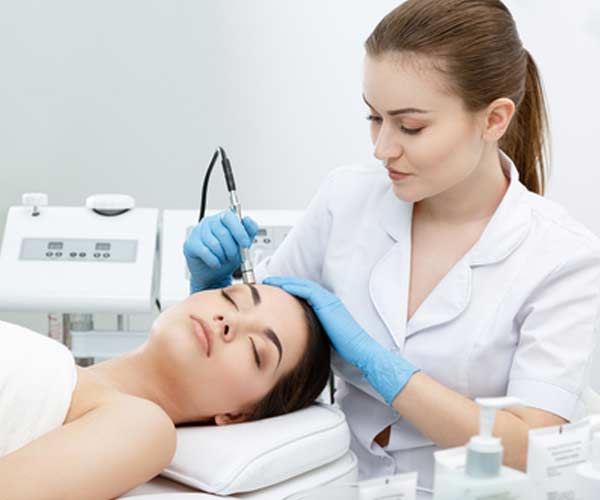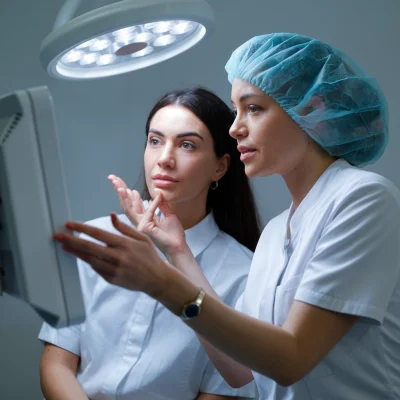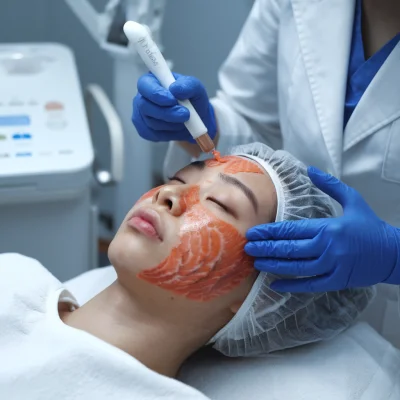Obtaining Low Level Laser Therapy certification (LLLT) opens up an entirely new set of opportunities for your aesthetic practice.
Also known as cold laser therapy, LLLT uses low-power lasers or special LEDs to:
- Promote skin tightening
- Limit hair growth or remove unsightly hair (laser hair removal)
- Reduce the appearance of scars and other blemishes
- Promote skin rejuvenation and wound healing.
Keep reading to learn the benefits of enrolling in a laser treatment certification course, how to find these courses, and what to expect from the experience.
Why Get Laser Therapy Certification
Cosmetic laser therapy certification has many benefits for individual practitioners (laser technicians) and the aesthetic practices they operate or work for:
- Wide range of potential treatment indications. Laser therapy has an incredible range of indications, including the treatment of common conditions like osteoarthritis, tendonitis, and chronic pain. It’s recognized as an effective skin rejuvenation agent and may assist in therapeutic uses such as smoking cessation as well.
- Amazing customization potential. Laser therapy is easy to customize to the needs and preferences of existing patients, enhancing the client experience.
- Complements existing cosmetic services. Laser therapy nicely complements other minimally invasive cosmetic services, such as Botox®, dermal fillers, and HydraFacial treatment. It’s a great way to expand your practice’s appeal.
- Relatively low risk of complications and side effects. With proper training and when not contraindicated, LLLT has minimal risks for patients.
- Enhances provider competence. Laser therapy certification makes aesthetic providers better at what they do by giving them skills they didn’t have before. That makes your practice more marketable.
How to Get Laser Therapy Training
Providers who want to add laser therapy to their list of credentials typically need to enroll in an accredited cosmetic laser therapy course. This course should satisfy any applicable state credentialing requirements around laser operation and safety.
This course may occur online (perhaps as part of a more comprehensive online aesthetics course that covers other aesthetic treatments, such as microdermabrasion and HydraFacial) or it may occur in person. Some laser training programs combine online didactic instruction with hands-on training in a simulated clinical environment.
To find courses that meet your needs, look to accredited medical and aesthetic training providers that use trainers with years of practice experience. Check verified testimonials from past trainees to confirm that you’ll get the value you expect from the experience.
What Should Laser Training Courses Cover?
Your preferred laser training course might be a single-subject course focused entirely on LLLT certification or a more comprehensive online curriculum.
Regardless of the scope and format, look for courses that cover:
- Basic principles of laser/light therapy. This includes the basic principles of action of laser and light treatments as well as tissue interactions in common treatment areas.
- Types of laser and light treatments. This part of the training should distinguish between topical treatments (PhotoBiostimulation) and “acupuncture” treatments whose intended effect is therapeutic.
- Types of therapeutic lasers and light sources. Laser light treatment devices come in many different forms. Providers need to know the differences between them and when one is indicated over another.
- Laser treatment protocols. Any laser therapy certification course should cover the “how” of treatment, including particulars like spot size, wavelength, and dosage.
Laser safety. Safety is a critical consideration in laser therapy. Even low-power lasers are dangerous when used improperly, so laser technicians need to have no uncertainty about what they’re doing. Your course should cover A.N.S.I. laser safety standards and other applicable safety protocols.





